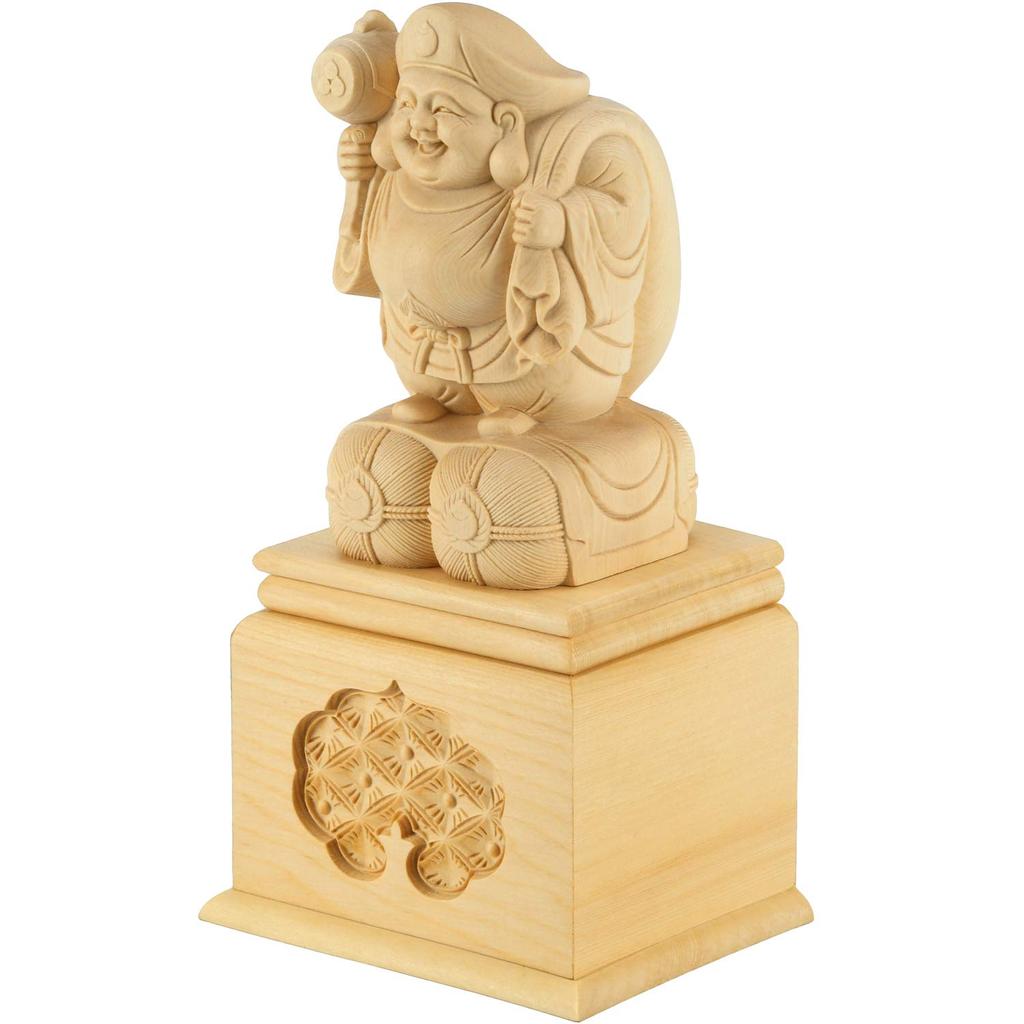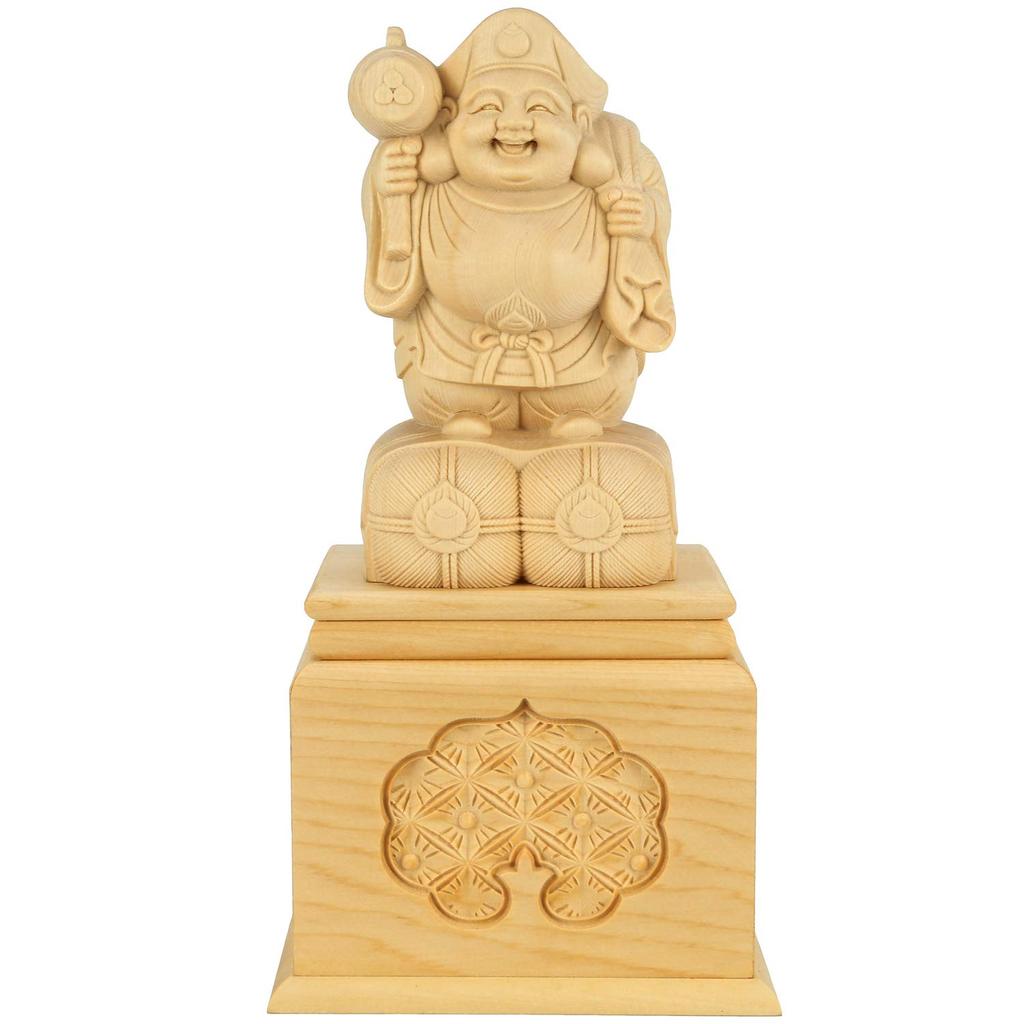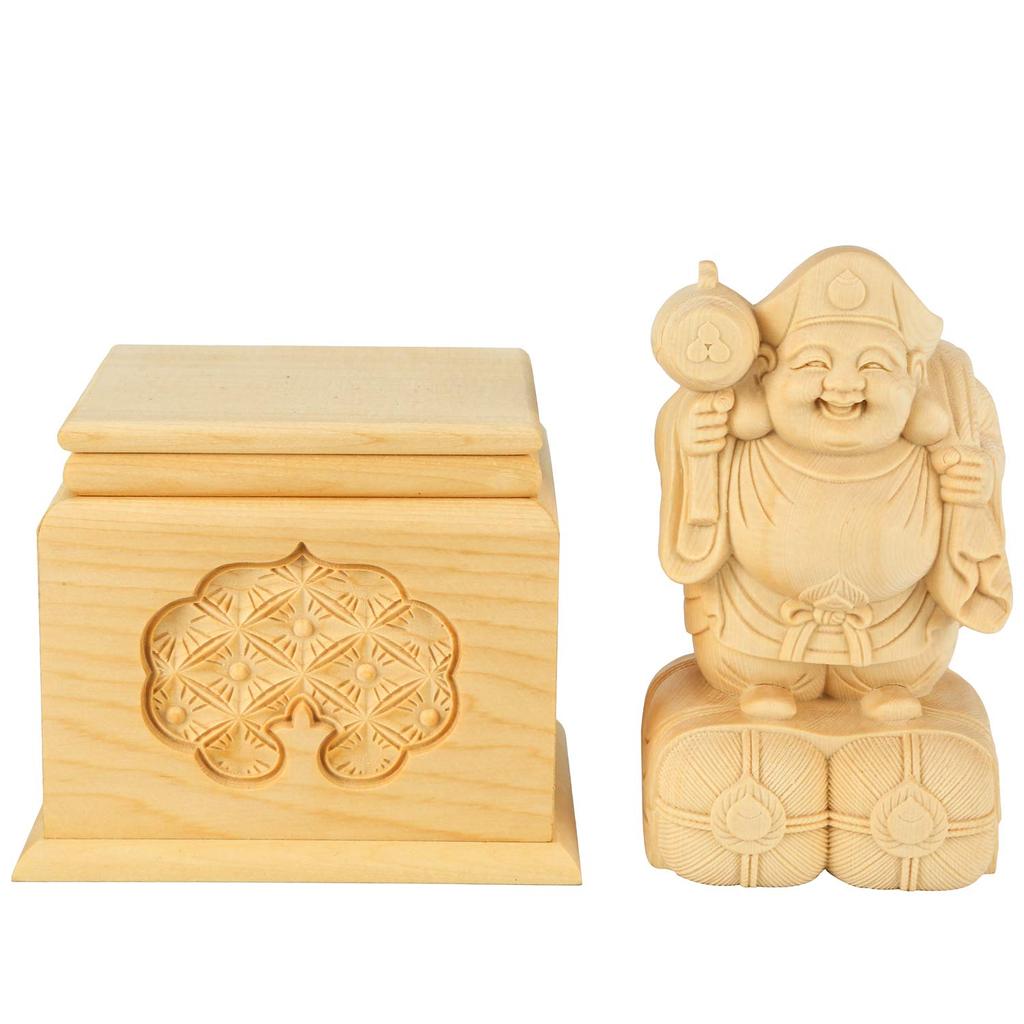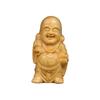----------------------------------------------------------------------
※※※ Please be careful of overseas shipping companies that sell inferior counterfeit products. Only "Sold by EnergyPower Shipped by Amazon" is a genuine product. ※※※
Daikokuten is widely loved for his kind smile and well-built figure. As one of the Seven Lucky Gods, Daikokuten is the object of prayers for food and wealth. He was originally Mahakala, an incarnation of the Hindu god Shiva, and had a wrathful face, a god completely different in appearance from the Daikokuten of today.
He was adopted as Daikokuten in Esoteric Buddhism, and when he was first introduced to Japan he was worshipped as the Buddha in charge of war and wealth. However, gradually the wealth aspect came to be emphasized, and he was further syncretized with Okuninushi, the Shinto deity known as the "White Rabbit of Inaba," to take on his current form as a symbol of abundant harvests and prosperous business.
He is also sometimes considered to be the same as Ebisu, another of the Seven Lucky Gods. For this reason, Daikokuten is worshipped in many temples and shrines in Japan, and is widely revered among the general public. One theory is that statues of Daikokuten are modeled after male genitalia due to the belief in fertility and child-making, with the main body of Daikokuten representing the penis and the rice sack below representing the scrotum. This makes sense when you look at a Daikokuten statue from behind.
This Daikokuten statue is made from high-quality natural boxwood from Hubei Province, China, and is a masterpiece lovingly finished by a skilled craftsman. Boxwood, with its fine grain and beautiful pale yellow color, has been considered a high-quality product ideal for crafts since ancient times. It is 21 cm tall and can be placed in a variety of places, such as a desk, a reception room, or an entrance hall. The base is designed like a piggy bank with a lid. There is a coin slot on the back of the base.
It will be delivered in a special presentation box.
Daikokuten is loved by many for his gentle smile and well-built figure. Daikokuten, one of the Seven Gods of Fortune, is the object of prayers for food and wealth. He was originally Mahakala, an incarnation of the Hindu god Shiva, and had an angry face, a completely different appearance from the Daikokuten of today. He was adopted as Daikokuten in esoteric Buddhism, and when he was first introduced to Japan, he was worshiped as a Buddha who governs war and wealth, but gradually only the wealth aspect was emphasized, and he was syncretized with Okuninushi, a Shinto god known as the "White Rabbit of Inaba," and became his current appearance, symbolizing bountiful harvests and prosperous business. He is also sometimes considered to be the same as Ebisu, another of the Seven Gods of Fortune. For these reasons, Daikokuten is worshiped in many temples and shrines in Japan, and is widely revered by the general public. Also, according to one theory, the statue of Daikokuten is modeled after the male genitalia due to the belief in fertility and child-making, with the main body of Daikokuten being the penis and the rice sack below being the scrotum. This makes sense when you look at the statue from behind. This Daikokuten statue is made of high-quality natural boxwood from Hubei Province, China, and is a masterpiece that has been lovingly finished by skilled craftsmen. It has a fine grain and a pale color.
Boxwood, with its beautiful yellow color, has been considered a luxury item ideal for crafts since ancient times. It is 21 cm tall and can be placed in a variety of places such as a desk, a reception room, or an entrance hall. The base is designed like a piggy bank with a lid. There is a coin slot on the back of the base. It will be delivered in a special presentation box.














![Special Buddhist Statue Daikokuten Standing Statue Made of Cypress Wood Height Width Depth with a Square Base 13670 Kurita's [Various Tenjin] (total](https://img.joomcdn.net/21127998cfa686ef88b230a22e01002622ef5a88_100_100.jpeg)






![Special Buddhist Statue Daikokuten Incense Holder Buddha Guardian Deity Treasure Width Boxwood Wood Carving 17562 Kurita's [Guardian Deity]](https://img.joomcdn.net/2ee4ffe810c28cfd9d3e068ec97b649e2304ae9c_100_100.jpeg)




![Special Buddhist Statue Sanmen Daikokuten Incense Holder Buddha Guardian Deity Treasure Width Boxwood Wood Carving 17611 Kurita's [Guardian Deity]](https://img.joomcdn.net/9fc4a56612e85c503f2e84422d6106784c6086b9_100_100.jpeg)





![Special Buddhist Statue Incense Container Buddha Guardian Deity Body Protection Width Boxwood Wood Carving 17572 Kurita's [Guardian Deity] Seigan-in](https://img.joomcdn.net/4d7947d6c5e07a33c27793f2d6851bbc3b3c5065_100_100.jpeg)